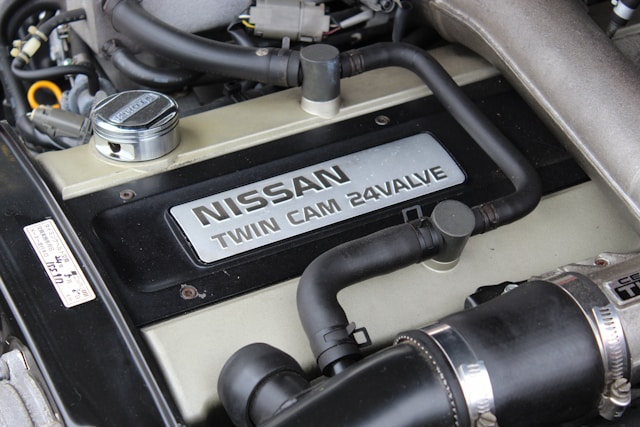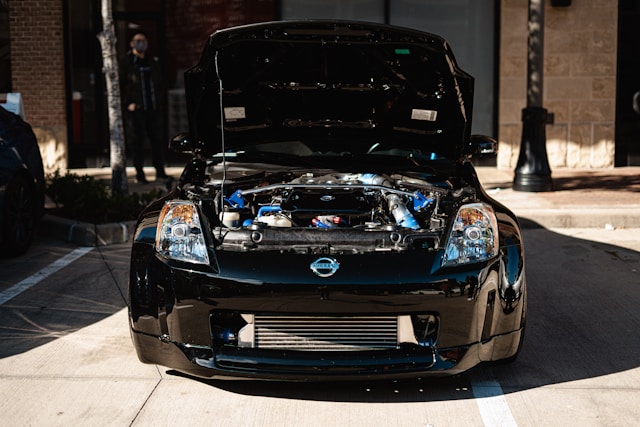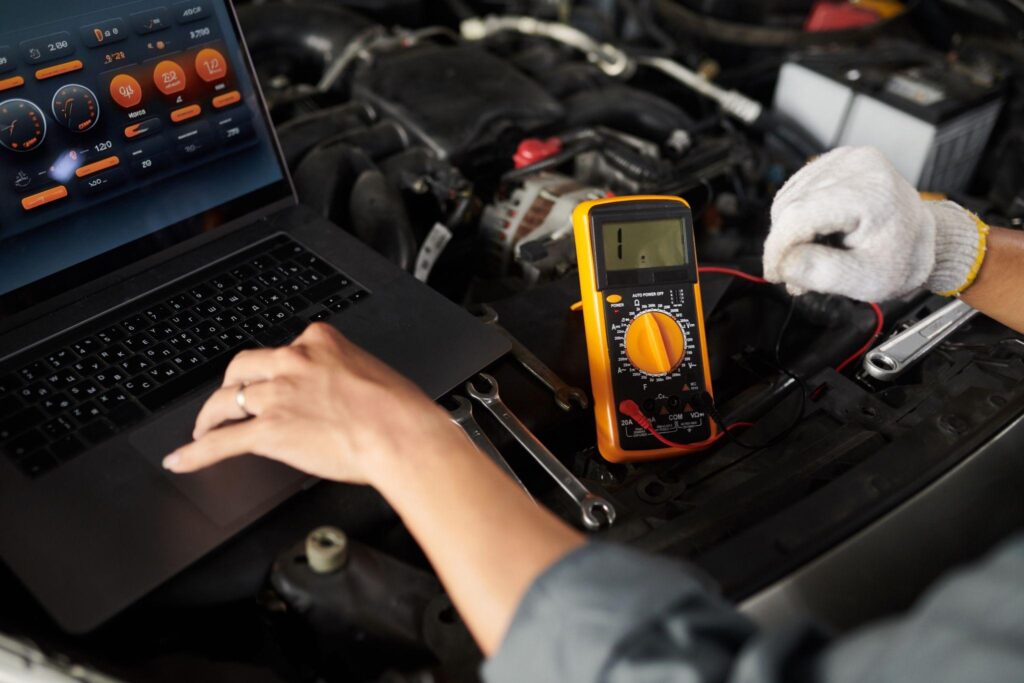Nissan Engine Technology and Performance Innovation
Nissan’s engine development has consistently pushed technological boundaries while maintaining a focus on reliability and performance across diverse applications. From compact economy cars to high-performance sports vehicles, Nissan has developed a comprehensive range of engines that demonstrate innovative engineering solutions and exceptional durability under various operating conditions.
Historical Foundation of Nissan Engine Design
Nissan’s engine development philosophy evolved from their early focus on creating reliable, efficient powerplants for the Japanese domestic market. The company’s commitment to engineering excellence established a foundation that would support decades of innovation in both performance and efficiency applications.
Early Nissan engines emphasized robust construction and straightforward maintenance, characteristics that became hallmarks of the brand’s engineering approach. These design principles created powerplants that delivered consistent performance while requiring minimal specialized service procedures.
The company’s investment in advanced manufacturing technologies enabled precise component production and consistent quality control. These capabilities supported Nissan’s reputation for producing engines that maintained performance characteristics throughout extended service lives.
The SR20 Legacy and Performance Heritage
The SR20 engine series represents one of Nissan’s most successful performance engine families, combining high-revving characteristics with exceptional reliability. These engines powered numerous iconic vehicles and established Nissan’s reputation in the performance market through their responsiveness and modification potential.
SR20 engines featured advanced technologies including four-valve-per-cylinder heads, sophisticated intake systems, and precise fuel injection that provided strong performance while maintaining acceptable fuel economy. The engines’ aluminum construction reduced weight while improving heat dissipation characteristics.
The availability of turbocharged SR20 variants demonstrated Nissan’s expertise in forced induction applications. These engines provided exceptional power density while maintaining the reliability characteristics that made naturally aspirated SR20 engines popular among enthusiasts worldwide.
VQ Engine Excellence and Recognition
Nissan’s VQ engine family has earned widespread recognition for combining smooth operation with strong performance characteristics. These V6 engines have received numerous awards and accolades while powering a diverse range of vehicles from luxury sedans to sports cars.
The VQ engine’s design emphasizes refinement through advanced balancing, sophisticated intake systems, and carefully tuned exhaust characteristics. These design elements create powerplants that deliver smooth operation across their entire rev range while providing strong acceleration performance.
Continuous development of the VQ platform has resulted in improved efficiency, enhanced performance, and reduced emissions while maintaining the smooth operation characteristics that made these engines famous. This ongoing refinement demonstrates Nissan’s commitment to optimizing proven designs.

Photo by Jaxon Smith on Unsplash
GT-R Engine Technology and Innovation
The development of engines for Nissan’s GT-R represents the pinnacle of the company’s performance engine capabilities. The VR38DETT engine incorporates advanced technologies including twin turbocharging, sophisticated engine management, and premium materials to deliver exceptional performance and reliability.
Hand-assembly processes for GT-R engines ensure exceptional build quality and consistency, with each engine bearing the signature of its builder. This attention to detail reflects Nissan’s commitment to creating engines that meet the demanding requirements of high-performance applications.
Advanced cooling systems, strengthened internal components, and sophisticated lubrication systems enable GT-R engines to deliver consistent performance under extreme conditions. These technologies demonstrate Nissan’s capability in developing engines for the most demanding applications.
Innovative Technologies and Future Development
Nissan’s development of variable compression ratio technology represents a significant advancement in internal combustion engine efficiency. The VC-Turbo engine can adjust compression ratios in real-time to optimize performance and efficiency based on operating conditions.
This variable compression technology combines with turbocharging to provide both high efficiency during light load conditions and strong performance when maximum power is required. The system demonstrates Nissan’s innovative approach to addressing competing performance and efficiency requirements.
Advanced engine management systems integrate multiple technologies to optimize combustion, emissions, and performance characteristics continuously. These systems represent sophisticated integration of mechanical and electronic technologies that enhance overall powertrain effectiveness.
Electric Vehicle Integration and e-POWER Technology
Nissan’s e-POWER system represents an innovative approach to hybrid technology, using internal combustion engines purely as generators while electric motors provide all wheel power. This system eliminates traditional transmission complexity while providing smooth, responsive performance.
The engines used in e-POWER applications are optimized specifically for generator duty, operating at consistent speeds and loads that maximize efficiency and minimize emissions. This specialized application demonstrates Nissan’s flexibility in adapting engine designs for specific requirements.
Integration of e-POWER technology with traditional vehicle systems requires sophisticated control algorithms and component coordination. Nissan’s successful implementation of this technology demonstrates their capability in complex system integration and control.
Manufacturing Excellence and Quality Control
Nissan’s engine manufacturing facilities incorporate advanced automation and quality control systems that ensure consistent production quality and performance characteristics. These manufacturing capabilities support the company’s reputation for producing reliable, long-lasting engines.
Precision machining and assembly processes contribute to tight tolerances and consistent component quality, supporting smooth operation and exceptional durability throughout the engine’s service life. These manufacturing standards reflect Nissan’s commitment to engineering excellence.
Comprehensive testing procedures verify engine performance, emissions compliance, and durability characteristics before engines leave the factory. These quality control measures help maintain Nissan’s reputation for producing reliable powerplants across their entire engine lineup.

Photo by Adrian Newell on Unsplash
Global Market Applications and Adaptations
Nissan’s engine designs are adapted for various global markets, with modifications addressing different fuel quality, emissions requirements, and operating conditions. This flexibility demonstrates the robust basic design of Nissan engines and their adaptability to diverse applications.
Regional variations in engine specifications often reflect local preferences and requirements, with power outputs, emissions equipment, and fuel systems modified accordingly. These adaptations ensure optimal performance in specific markets while maintaining reliability characteristics.
The global success of Nissan engines reflects their fundamental design excellence and the company’s ability to adapt proven technologies for diverse applications and markets worldwide.
Aftermarket Support and Enthusiast Community
The popularity of Nissan engines among performance enthusiasts has created extensive aftermarket support for both replacement components and performance upgrades. Many enthusiasts specifically seek to buy JDM Nissan engine online options that may offer different specifications or enhanced performance characteristics.
Performance modifications for Nissan engines often focus on enhanced airflow, improved exhaust systems, and engine management tuning to extract additional power while maintaining reliability. The robust design of most Nissan engines accommodates these modifications well when properly implemented.
The strong enthusiast community surrounding Nissan engines contributes to extensive knowledge sharing and technical development. This community support enhances the ownership experience and provides resources for maintaining and modifying these engines effectively.
Racing Heritage and Competition Success
Nissan’s involvement in various forms of motorsport has provided valuable development experience that influences production engine design. Competition applications demonstrate the performance potential and durability of Nissan engine architecture under extreme conditions.
Success in racing series ranging from touring cars to prototype racing has enhanced Nissan’s performance reputation and demonstrated the capabilities of their engine designs. This racing heritage contributes to consumer confidence and enthusiast interest in Nissan powerplants.
Competition-derived technologies often find their way into production engines, improving performance, reliability, and efficiency for all customers. This technology transfer demonstrates the value of motorsport involvement in advancing automotive engineering.
0
